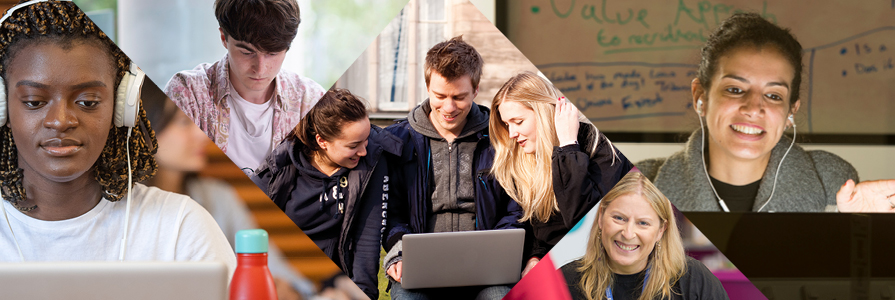SFC news published since 2018. See SFC archived content for earlier news articles.
Alison’s social enterprise company has a global mission and her ambitions have been supported through collaboration with college and university partners. She is interviewed here by @InterfaceOnline

Flocowear is a mission-driven company that manufactures and sells reusable sanitary pads and provides menstrual health education in countries such as Cambodia, Uganda and Kenya.

Describe your business/organisation in under 10 words:
Floco is on a mission to ensure everyone can have the best period they can with comfortable reusable period pads.
Where do you want to take the business – regional, Scotland-wide or global?
We’ve got a global mission. Floco started three years ago, when I was researching how to effectively teach sexual health in rural Kenya, and found out that many of the girls were exchanging sex for period products. We began designing our own pads and selling them at a subsidised rate to ensure the girls have access.
Along that journey, we also realised that most women in the UK find that their pads are uncomfortable and bulky. Therefore, we adapted the design we sell in Kenya for the UK, to ensure it fitted the market here.
Our UK pad is thin enough to be worn under leggings without being seen, it’s super soft and is machine washable. We donate 10% of our UK revenue to our international projects, subsidising the sale of period products globally. We are currently working with communities in eight countries globally.
Women around the world should not have to risk their dreams of a better future in order to service their flow. This natural biological function has existed since the dawn of woman and Floco is dedicated to helping people who flow live the best life they can. So when you buy from Floco we send a pack to women around the world who desperately need them. And this isn’t your typical donation scheme that only has one life and infamously creates dependency. Floco is passionate about creating an independent economy with entrepreneurial women in these communities who sell.
Floco’s pads sell at such low prices that people in the area can afford them while enabling the sellers to make a living.
Which university did you work with, and what was the issue you wanted to overcome by working with academics/students/researchers?
We worked with Ayrshire College and the National Manufacturing Institute of Scotland to develop our product.
 We were amazed to discover that the reusable period pads on the market were cumbersome and depressingly visible through clothing. Sure, they were more comfortable than the traditional
We were amazed to discover that the reusable period pads on the market were cumbersome and depressingly visible through clothing. Sure, they were more comfortable than the traditional
nappy-rash-quality of disposable pads we’ve all been putting up with for years, but these reusable pads were a long way off from being absorbent or discreet enough for women to feel confident wearing them out of the house. Why should people who flow put up with anything less? For too long flow products have not been given the innovation they deserve.
To this end, Floco is on a mission to create reusable pads that are super absorbent and amazingly comfortable but are also really discreet. Floco’s pads are also easy to wash and will save you the monthly cost of buying disposables. Floco’s pads are an absolute game-changer for people who flow, especially if tampons and cups just ain’t your thing.
What benefits did the collaboration bring to your business/organisation?
A common problem with reusable pads is that they move as there is no sticky tape. The collaboration enabled us to bring in specialists we otherwise wouldn’t be able to work with to try new ideas including different materials and wing shapes so we now have a product that doesn’t move.
How did Interface support your business/organisation?
They helped find the perfect project partner.
What would you say to other businesses thinking of partnering with academics, but are unsure about it?
Go for it! We’ve had multiple different collaborations for different purposes and have always ended with a great match.
The above was first published on the Interface website to coincide with the launch of a series of innovation webinars that continues until 30 September 2021. For more information see the Interface website events page.

